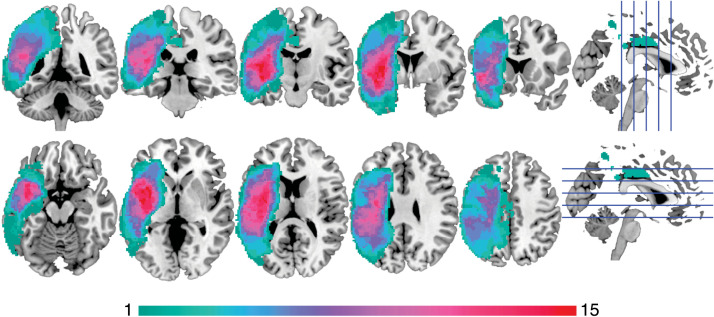Interview with collaborators of the Center for Brain Recovery and publication authors Sarah Beach (MIT) and Caroline Niziolek (University of Wisconsin Madison)
Abstract
Hearing one’s own speech allows for acoustic self-monitoring in real time. Left-hemisphere motor planning regions are thought to give rise to efferent predictions that can be compared to true feedback in sensory cortices, resulting in neural suppression commensurate with the degree of overlap between predicted and actual sensations. Sensory prediction errors thus serve as a possible mechanism of detection of deviant speech sounds, which can then feed back into corrective action, allowing for online control of speech acoustics. The goal of this study was to assess the integrity of this detection-correction circuit in persons with aphasia (PWA) whose left-hemisphere lesions may limit their ability to control variability in speech output. We recorded magnetoencephalography (MEG) while 15 PWA and age-matched controls spoke monosyllabic words and listened to playback of their utterances. From this, we measured speaking-induced suppression of the M100 neural response and related it to lesion profiles and speech behavior. Both speaking-induced suppression and cortical sensitivity to deviance were preserved at the group level in PWA. PWA with more spared tissue in pars opercularis had greater left-hemisphere neural suppression and greater behavioral correction of acoustically deviant pronunciations, whereas sparing of superior temporal gyrus was not related to neural suppression or acoustic behavior. In turn, PWA who made greater corrections had fewer overt speech errors in the MEG task. Thus, the motor planning regions that generate the efferent prediction are integral to performing corrections when that prediction is violated.
Q&A with Sara Beach
What is the purpose of your research?
Can individuals with post-stroke aphasia monitor their own speech for potential pronunciation errors? In this study, we found that this ability was correlated with the amount of spared brain tissue in the left inferior frontal gyrus, pars opercularis. This insight may inform the evaluation and treatment of speech-production deficits in aphasia.
How do your findings relate to the brain and recovery?
Our findings highlight the importance of the importance of this brain region, part of Broca’s area, to the auditory feedback circuit that has, to date, largely been studied in non-speaking animals.
___
Beach, S. D., Tang, D., Kiran, S., & Niziolek, C. A. (2024). Pars opercularis underlies efferent predictions and successful auditory feedback processing in speech: Evidence from left-hemisphere stroke. Neurobiology of Language. Advance publication. https://doi.org/10.1162/nol_a_00139
